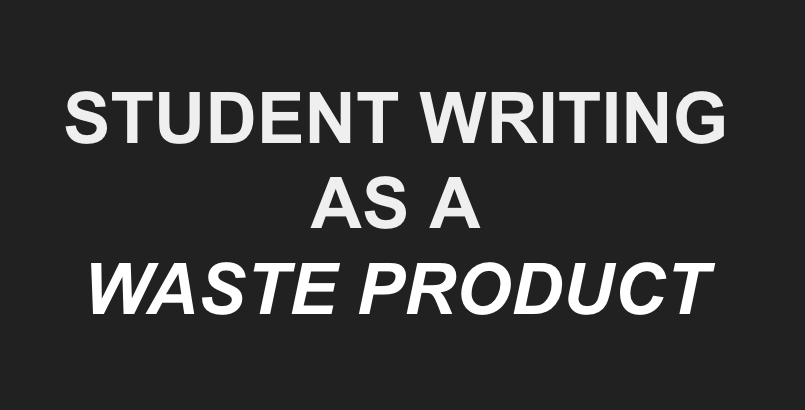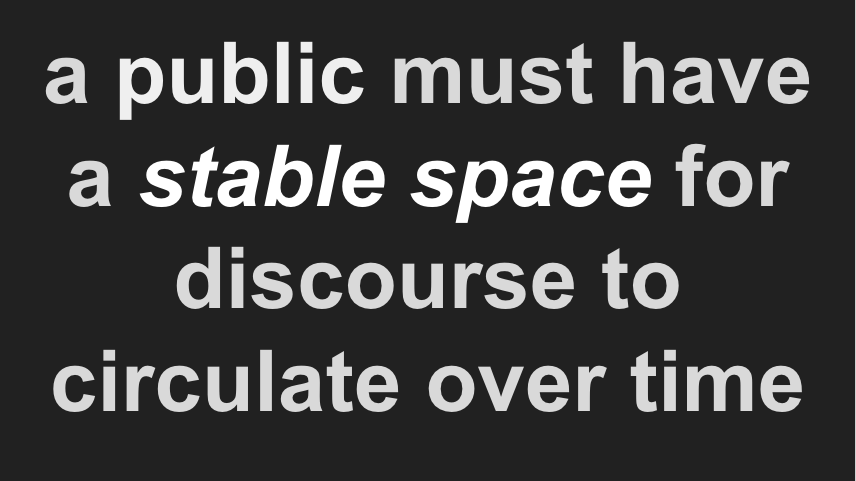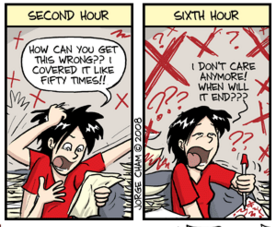Every year, enough papers are written by American students to almost reach the moon. And if one considers student writing globally, that distance expands beyond imagination.
I want you picture this enormous chain of words stretching from earth and into outer space, and then I want you to ask yourself who is reading that writing. I want you to ask what we learn about the practical power of speech when we practice speaking to nobody.
I think of the many Graduate Center students with whom I have worked with and admired for years, and I think of the many other students with whom I have shared classrooms and teachers, passions and frustrations, since my first day of college so many years ago. I think of these students and wonder, why do I know so much about where they ate last night, or which cat video they watched this morning, or their immediate reaction to any one of the day’s events, yet I do not know what they struggled to reflect upon and express in their own part of that great chain to the moon. Why is this part of their intellectual activity given no dignified space to be shared?
In an age when “sharing” is as easy as pushing a button, my colleague Austin Bailey can still say, “student writing has got to be one of the most capacious and most read genres of literature out there, yet it so infrequently sees the light of day.” We may say that genre is capacious, as it occupies a vast portion of the energies and aspirations of students as well as the labor of those whom are employed evaluate it. Yet it is also hidden, as from the moment of its composition, student writing never has a chance to shine, or rather, to attract an authentic public.

Student writing, then, is a waste product, a valueless byproduct in the production of literate citizens.
I think of the people—how many thousands?— that were rejected from Ph.D. programs this year, that were rejected last year, that will be rejected next year. I think of their hunger to find a space and a culture which promotes the practice and exchange of reflective thought. I think of the memes that they shared, and the posts that they liked, and the waste product of student writing that never showed up on their feeds. The university jealously guards its monopoly of intellectual activity while that activity becomes increasingly disconnected from life. It is the university, however, that will pay most dearly if it does not struggle to welcome the public into the soul of its intellectual process. There is no reason that the enormous energies of student writing, once conscious of its collective power, could not be directed to this pressing need and unleash itself into public conversation.
We must note, that this disconnect is occuring — still, somehow — amongst widespread, emerging enthusiasm for forms of peer and public pedagogy. Through the brave and experimental efforts of our students and our educators, we have come to feel the great promise that the collaborative, the social and the public hold for our intellectual engagements. For this we should feel gratitude and hope. But it is not enough. For the tools that we use, whether open source or proprietary, whether popular or school-sponsored, whether Twitter or Google or WordPress or Blackboard, swallow up, lock away, and obscure student writing in the great continuous shuffle of the web.
 What then is the problem? We have satisfied ourselves with the most minimal understanding of the term public. We have taken it to simply mean accessible, that a stranger, if given the link, could click with success. But this is hardly the conditions of a public. A public must have a stable space for discourse to circulate over time. A public must allow for new members to join as the old fade away. A public must not die every semester.
What then is the problem? We have satisfied ourselves with the most minimal understanding of the term public. We have taken it to simply mean accessible, that a stranger, if given the link, could click with success. But this is hardly the conditions of a public. A public must have a stable space for discourse to circulate over time. A public must allow for new members to join as the old fade away. A public must not die every semester.
As librarians and scholarly advocates make tremendous headway in building out such stable spaces for professional scholarly work through open access repositories and digital commons, let us also build a stable space for student writing to accrue dignity and circulate over time across disciplines, institutions, communities, and nations. Let students, not the Edtech industry, debate and determine the emerging design of the space which will carry their voice. In this way, let them reimagine for the full possibility of speech. For they are the world’s most important public and only they can write themselves into being.

Responses